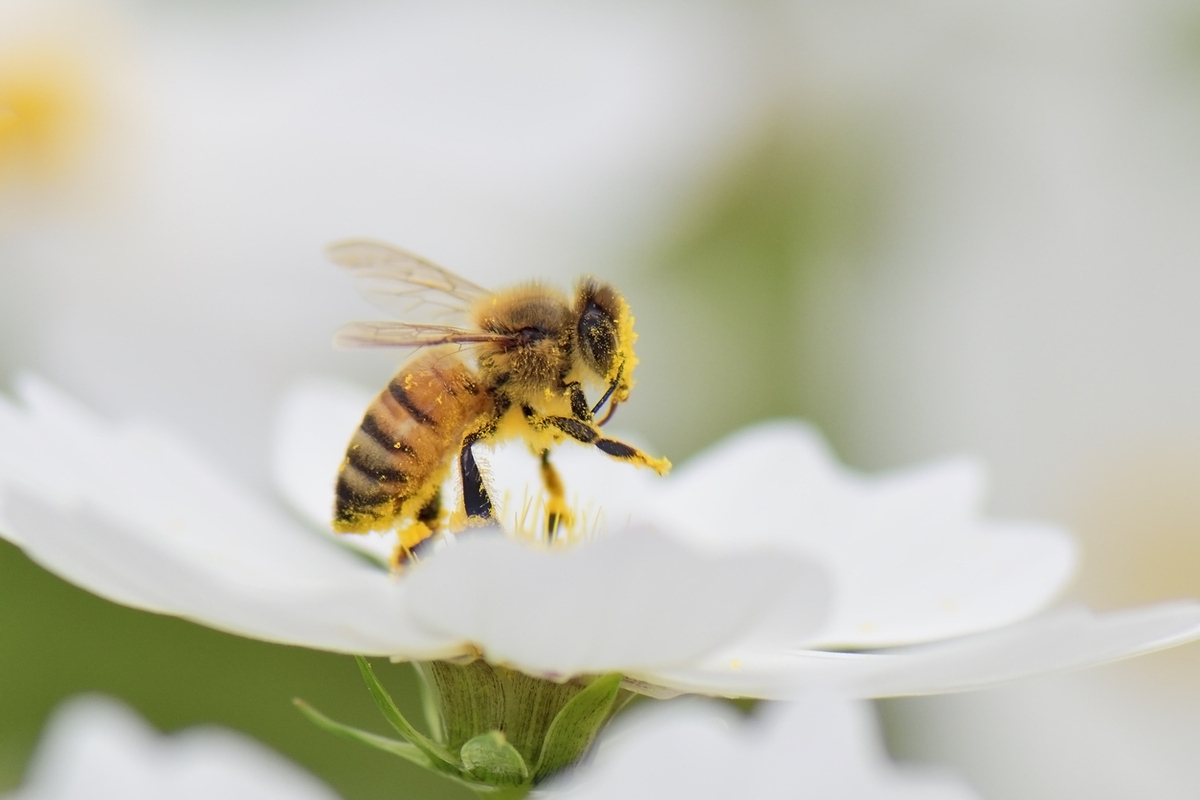
Oxford Develops Honey Bee Food Supplements Using CRISPR-Cas9
August 27, 2025| |
A study led by researchers from the University of Oxford and partners has developed a low-cost, sustainable food supplement that could help reverse the alarming decline in honeybee populations. The supplement, made from edited yeast Yarrowia lipolytica, was shown to significantly improve colony reproduction. The findings were published in Nature.
The research team used the CRISPR-Cas9 gene editing technique to modify Yarrowia lipolytica to produce six key sterols, specific lipids found in pollen. The edited yeast biomass was cultured in bioreactors, harvested, and then dried into a powder to produce the sterol-enriched supplement. “For bees, the difference between the sterol-enriched diet and conventional feeds would be comparable to humans eating balanced meals versus meals missing essential nutrients,” explained Dr. Elynor Moore, lead author of the study.
In controlled trials, colonies fed with the sterol-enriched yeast reared up to 15 times more larvae than those on standard diets, while also sustaining brood production longer. The study also found that the sterol profile of the larvae matched that of naturally foraged colonies. While large-scale field trials are still needed, the researchers believe the product could be available to farmers within two years.
For more information, read the article from the University of Oxford or the study from Nature.
| |
You might also like:
- Experts Tackle Development of CRISPR Honey Bees
- Genetically Engineered Gut Bacteria Boost Honey Bees' Immunity, Limit Pathogens
- Gene Drive Model Increases Knowledge Against Destructive Bee Parasite
Biotech Updates is a weekly newsletter of ISAAA, a not-for-profit organization. It is distributed for free to over 22,000 subscribers worldwide to inform them about the key developments in biosciences, especially in biotechnology. Your support will help us in our mission to feed the world with knowledge. You can help by donating as little as $10.
-
See more articles:
-
Plant
- Oxford Develops Honey Bee Food Supplements Using CRISPR-Cas9
- Experts Introduce CRISPR-GPT to Automate Gene Editing Experiments
- AI Tool MorphPod Automates Plant Fruit Measuring to Breed Better Crops
- EFSA GMO Panel Releases Scientific Assessment of GM Cotton GHB614 × LLCotton25
- Chile Gives Green Light to Gene-edited High-fiber Wheat
-
Food
- Study Reveals Liberica Coffee Consists of Three Distinct Species with Climate-Resilient Options
- Last Chance to Secure Your Spot at ASCA 2025
-
Health
- McGill Researchers Use Vibrations to Strengthen Lab-Grown Tissues
-
Read the latest: - Biotech Updates (January 14, 2026)
- Gene Editing Supplement (December 17, 2025)
- Gene Drive Supplement (February 22, 2023)
-
Subscribe to BU: - Share
- Tweet

